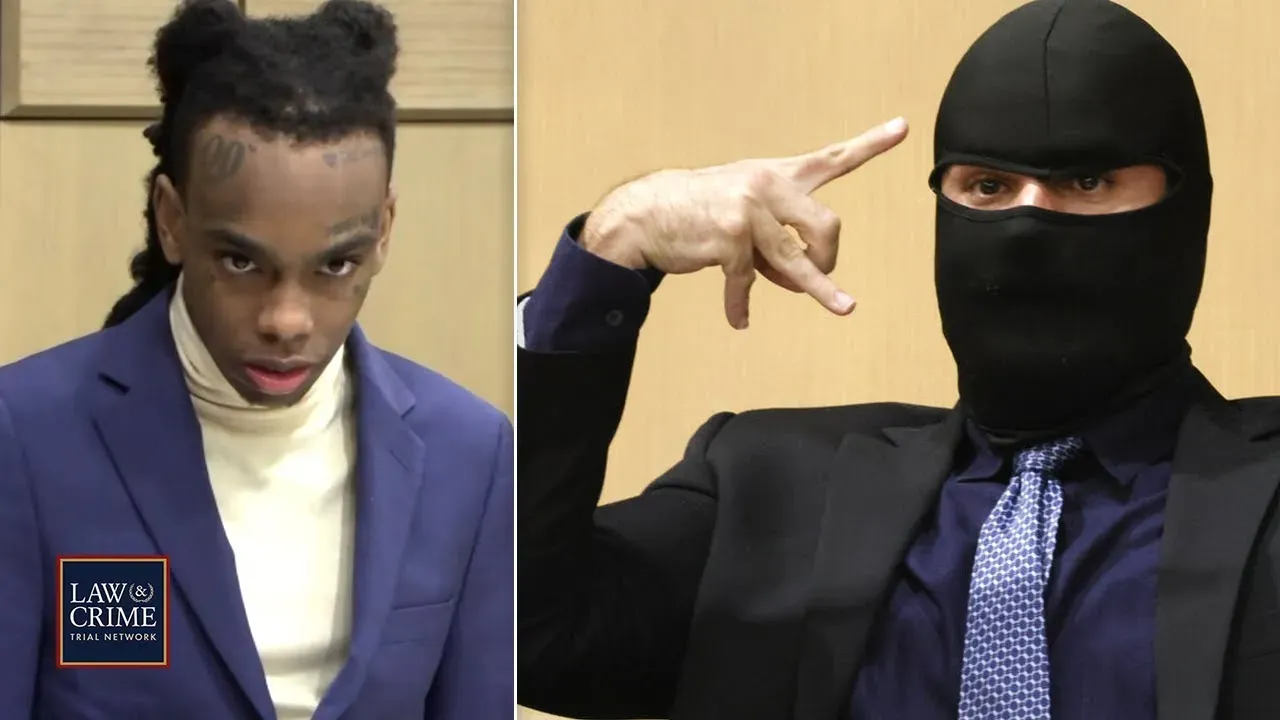The recent Dude With Sign lawsuit has brought significant attention to the intersection of meme culture and copyright law. Created by Seth Phillips, this Instagram account has captivated millions by showcasing humorous signs that critique everyday life, prompting users to share his satirical takes widely. However, Jerry Media, which owns the account, has initiated seven lawsuits against various brands for allegedly appropriating Phillips’s likeness to promote their products without permission. This has raised concerns about copyright infringement and the convoluted landscape of memes in advertising. As the legal implications unfold, the debate surrounding ownership of viral content continues to resonate in the realms of social media, marketing, and intellectual property.
In a striking turn of events, the controversy surrounding the legal claims against brands utilizing the Dude With Sign image sheds light on broader issues of image rights and digital creativity. This satirical social media phenomenon, brought to life by Seth Phillips, faces numerous accusations of copyright infringement primarily directed at companies that incorporated his likeness into their advertisements. The involvement of Jerry Media highlights the challenges posed by integrating memes and digital media into commercial spaces while also raising questions about authenticity and endorsement. As brands increasingly turn to popular internet figures for promotional purposes, this case serves as a critical examination of the fine line between homage and exploitation in online culture. The unfolding legal battles encapsulate the complexities of modern advertising strategies where often, the very essence of memes becomes commodified.
The Legal Battle over Seth Phillips Memes
The legal landscape surrounding the Dude With Sign account has become increasingly complex as Jerry Media, the entity behind the Instagram account, takes on brands for copyright infringement. Since November 2022, at least seven lawsuits have been filed against various companies that allegedly utilized Seth Phillips’s likeness in their advertisements without appropriate permission. These legal actions raise pressing questions about ownership, creativity, and the extendibility of copyright laws in the digital age where memes are plentiful and often shared without authorization.
This aggressive stance from Jerry Media illustrates not only their commitment to protecting their assets but also serves as a warning to other brands thinking of leveraging popular memes for commercial gain. By asserting their rights through litigation, they are highlighting the need for brands to understand the legal implications of using user-generated content. As memes continue to weave themselves into the fabric of advertising, a clearer guideline is required to navigate the complex waters of copyright law and meme usage.
How Memes Are Transforming Advertising Strategies
Memes have become a powerful tool in modern advertising, providing brands with a unique way to engage with their audiences. The use of relatable and humorous content is an effective strategy to capture consumer attention, allowing brands to connect more personally with their target demographics. In the case of Dude With Sign, brands attempted to ride the wave of Phillips’s viral success by incorporating his likeness into their own messaging, which led to questions about authenticity and endorsement.
While the integration of memes within advertising offers substantial opportunities, it also poses risks. Brands must tread carefully, as misusing a meme can lead to legal ramifications, such as those faced by the companies suing over the Dude With Sign lawsuit. This situation underscores the importance of ethical marketing practices, where brands must seek explicit agreements or licensing arrangements before using recognizable images, ensuring both compliance with copyright laws and the preservation of credibility with their audiences.
The Rise of Copyright Infringement in Meme Culture
As meme culture proliferates across social media platforms, the issue of copyright infringement has become increasingly prominent. With the ease of sharing and remixing content, many creators inadvertently find themselves at odds with established copyright holders. The landscape is further complicated by situations like the Dude With Sign lawsuits, where brands have created derivative work that reportedly misrepresented the original creator’s intentions, causing confusion among audiences over true endorsements.
This growing trend highlights the need for more robust discussions about copyright in the context of digital media. Creators, brands, and consumers alike must cultivate an understanding of rights and responsibilities in this meme-filled environment. The precedent set by Jerry Media’s legal actions against various brands serves as a reminder of the potential consequences of disregarding copyright, urging all parties involved to approach meme usage with caution.
Fan Reactions to the Dude With Sign Lawsuits
The response from fans and followers of the Dude With Sign account following the lawsuits has been mixed, with many expressing support for Seth Phillips and Jerry Media’s efforts to protect their brand. On the one hand, fans admire Phillips’s creativity and the humor he brings to relatable life situations. On the other hand, there are calls for more awareness about the potential ramifications of using popular images for commercial purposes without permission.
These legal battles have led to an increased dialogue between creators and the brands looking to promote through social media. Followers are weighing in on social platforms, debating the ethics of utilizing memes in brand marketing. The conversation emphasizes how crucial it is for companies to engage with content creators and navigate their legal obligations fairly, promoting a more respectful and innovative space for meme culture.
Jerry Media’s History with Copyright Issues
Jerry Media’s engagement with copyright has not always been straightforward, as evidenced by their own past controversies concerning the appropriation of others’ content. The original @fuckjerry account faced significant backlash for allegedly stealing jokes and memes without proper attribution, prompting discussions around ethical content sharing on social media. This history casts an ironic shadow on Jerry Media’s current lawsuits, as some critics argue that the company should reflect on its own practices before pursuing legal action against others.
Despite these controversies, Jerry Media has shifted its focus to protecting the character created by Seth Phillips. This transition illustrates the complexities of internet culture, where the lines between inspiration and infringement can blur. The company’s legal stance today highlights a changing narrative, recognizing the importance of intellectual property both in protecting their creations and respecting the works of others in the digital landscape.
Navigating the Meme Economy
The rise of the meme economy has transformed how brands market themselves and engage with consumers. As memes become increasingly mainstream in advertising strategies, understanding their legal implications is crucial for success. The disputes surrounding the Dude With Sign images point to a critical need for businesses to comprehend the economics of memes and their ownership rights. Without this knowledge, brands risk alienating audiences and facing lawsuits that can undermine their credibility and impact.
Fostering a culture that respects digital creators and their work can pave the way for innovative marketing practices. Memes have the potential to be both entertaining and effective, but brands must balance humor and commerce with ethical considerations. The lawsuits filed by Jerry Media against brands using the Dude With Sign imagery without permission serve as a call to action for all those involved in the meme economy to reassess their approach to using viral content in advertising.
The Importance of Clear Endorsements in Advertising
Endorsement clarity is essential in advertising, especially when utilizing a popular figure like Seth Phillips from the Dude With Sign account. The ambiguity surrounding some of the memes shared by brands led to legal disputes and public confusion over whether these depictions represented authentic partnerships. Companies must be transparent about their collaborations and how they represent influencers or original content creators to maintain trust and authenticity in their messaging.
As more brands consider integrating memes into their advertising strategies, the lesson from the Dude With Sign lawsuits is an important one. Providing clear indications of endorsement protects both the brand’s integrity and the creator’s rights. Brands must strive for transparency, making sure consumers understand when content is sponsored, thus preserving the creativity and humor of memes while navigating the complexities of copyright and deception.
The Future of Memes in Digital Advertising
The future of memes in digital advertising is poised to evolve as brands, creators, and audiences adapt to the developing landscape of copyright and content creation. With the rise of content lawsuits like those surrounding the Dude With Sign account, there is an increased awareness of the legalities involved in using viral images. Brands may now opt for more strategic partnerships with creators, ensuring that they operate within the bounds of copyright, which could lead to healthier collaborations and more authentic advertising.
As audiences favor originality and authenticity, the brand’s relationship with memes must also change. Future strategies will likely focus on creating organic, relatable content that resonates with consumers while respecting copyright laws. By learning from current legal disputes and prioritizing fair use, companies have the opportunity to create effective advertising that embraces creativity without stepping outside legal boundaries.
Memes and Their Role in Building Brand Identity
Memes have emerged as a significant tool for brands looking to cultivate a distinctive identity in a saturated market. The humor and relatability inherent in memes can help companies connect with their target audiences on a personal level, making them memorable. However, the use of characters like Seth Phillips from the Dude With Sign also underscores the importance of authenticity in any brand’s marketing efforts.
Incorporating memes into branding must be approached thoughtfully to avoid issues of misrepresentation or infringement. Brands need to explore unique avenues for content creation while remaining respectful of creators’ rights and their contributions. By aligning their brand identity with authentic content, companies can enhance their visibility while avoiding the pitfalls that come with using someone else’s creative work without permission.
Frequently Asked Questions
What is the ‘Dude With Sign lawsuit’ about?
The ‘Dude With Sign lawsuit’ refers to a series of legal actions taken by Jerry Media on behalf of Seth Phillips, the creator behind the popular Instagram account @dudewithsign. The lawsuits target brands that allegedly used Phillips’s likeness without permission, violating copyright laws by posting edited memes that could imply a false endorsement.
How many lawsuits have been filed in relation to the Dude With Sign meme?
As of April 2023, Jerry Media has filed at least seven lawsuits against various brands for utilizing the Dude With Sign meme without authorization. These brands include Snak Club, BruMate, and Avid, among others, that have posted altered versions of the meme to their social media accounts.
What is the basis for the copyright infringement claims in the Dude With Sign lawsuits?
The copyright infringement claims in the Dude With Sign lawsuits are based on the unauthorized use of copyrighted images and characters created by Jerry Media, specifically featuring Seth Phillips holding humorous signs. These brands are accused of using the images in commercial advertising without permissions, which breaches copyright laws.
What defenses are brands using in the Dude With Sign lawsuits?
Some brands have argued that their use of the Dude With Sign meme falls under fair use, suggesting that the memes are parodies. However, the distinction between parody and commercial use can be complex, and many brands face a strong case against them for misleading endorsements and copyright violations.
What has been the outcome of most Dude With Sign lawsuits?
Most of the lawsuits related to the Dude With Sign have been dismissed, likely due to settlements or the deletion of the infringing posts. Jerry Media aims to protect its copyright while acknowledging the viral nature of memes, allowing for personal sharing but not commercial exploitation.
How does Jerry Media’s position on meme usage differ from past criticisms?
Jerry Media has faced past criticisms for allegedly stealing memes through their accounts like @fuckjerry. Currently, they assert a strong stance against unauthorized commercial use of their creations, attempting to differentiate between personal sharing and misrepresentation for sponsorships.
What impact did the Dude With Sign lawsuit have on meme culture?
The Dude With Sign lawsuit underscores the tensions between meme culture and copyright law. It highlights the necessity for brands to seek proper permissions before using popular memes for advertising, illustrating a potential shift in how meme creators and brands interact legally.
Who are the creators behind the Dude With Sign account?
The Dude With Sign account was initially conceptualized by Elliot Tebele, the founder of Jerry Media, and was later revitalized by Seth Phillips, who is acknowledged as the face and creative mind behind the memes, gaining significant popularity with millions of followers.
What lessons can brands learn from the Dude With Sign lawsuits?
Brands can learn the importance of obtaining permission when using copyrighted material, particularly popular memes like those from Dude With Sign, to avoid legal disputes over copyright infringement and misleading endorsements.
How has the public reacted to the Dude With Sign lawsuits?
Public reactions to the Dude With Sign lawsuits have varied, with some supporting Jerry Media’s stance on copyright, while others criticize the practices of enforcing rights around digital content and memes that have become integral to online culture.
| Key Aspect | Details |
|---|---|
| Lawsuits Filed | Seven lawsuits against brands using Dude With Sign’s likeness. |
| Origin of Dude With Sign | Created by Seth Phillips under Jerry Media, inspired by Elliot Tebele’s concept. |
| Social Media Impact | The account boasts 8 million followers and features humorous signs. |
| Allegations Against Brands | Brands used Phillips’s image for marketing without permission, misleading followers about endorsements. |
| Legal Basis for Lawsuits | Claims of copyright infringement and false endorsement due to unauthorized use of images. |
| Content Sharing Philosophy | Jerry Media supports noncommercial sharing but prohibits alterations for commercial use. |
| Public Reaction and Criticism | Jerry Media faced backlash for previous meme usage without credit, leading to a cultural debate. |
Summary
The Dude With Sign lawsuit highlights the complex relationship between copyright and the viral nature of memes. This recent legal action, initiated by Jerry Media for unauthorized usage of the popular Dude With Sign character, underscores the importance of obtaining permission and understanding copyright laws in social media marketing. Jerry Media’s assertive stance reinforces the need for brands to respect intellectual property rights while navigating the blurred lines of meme culture.



